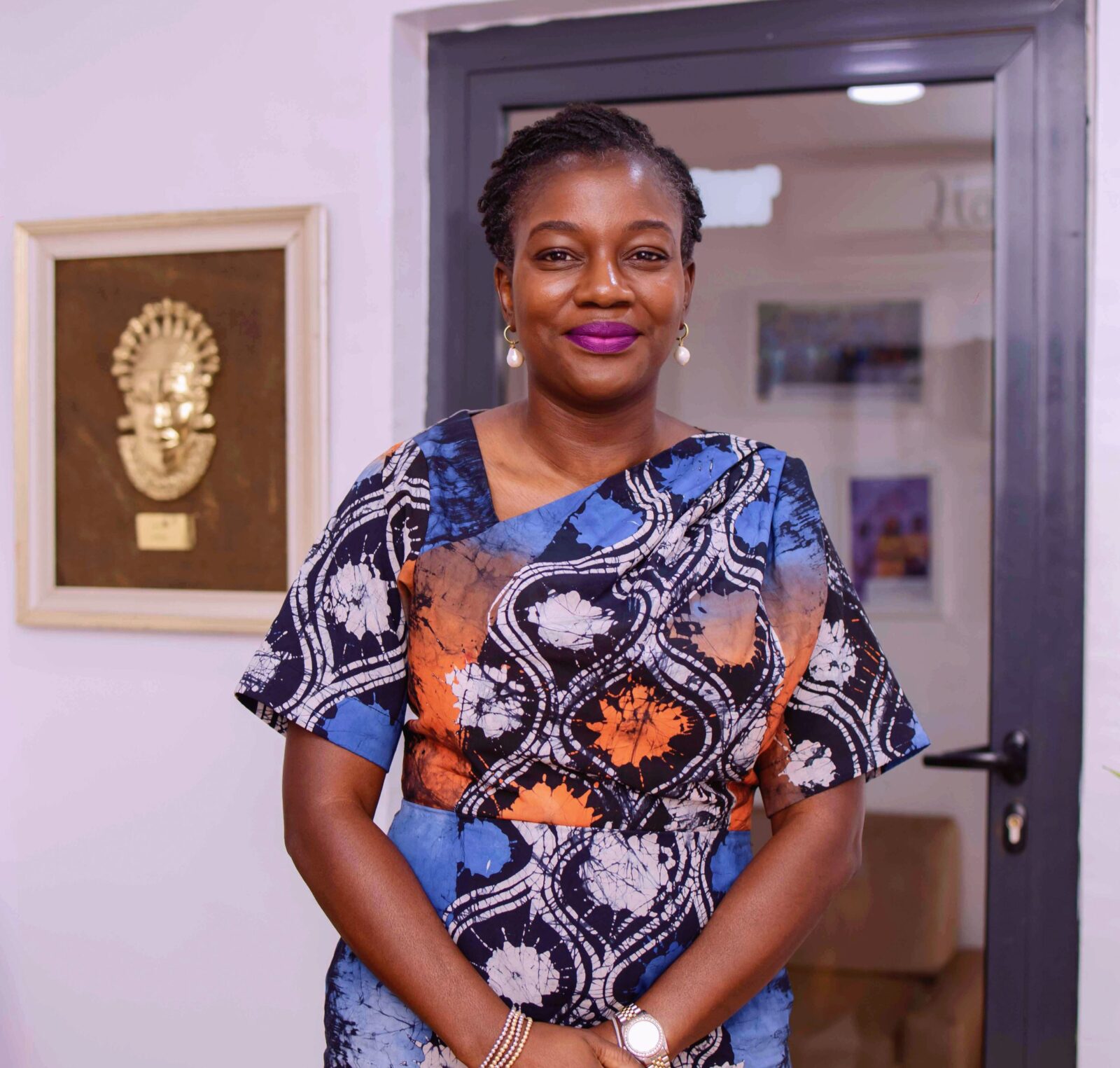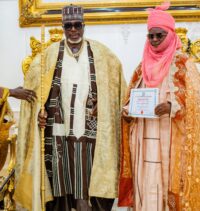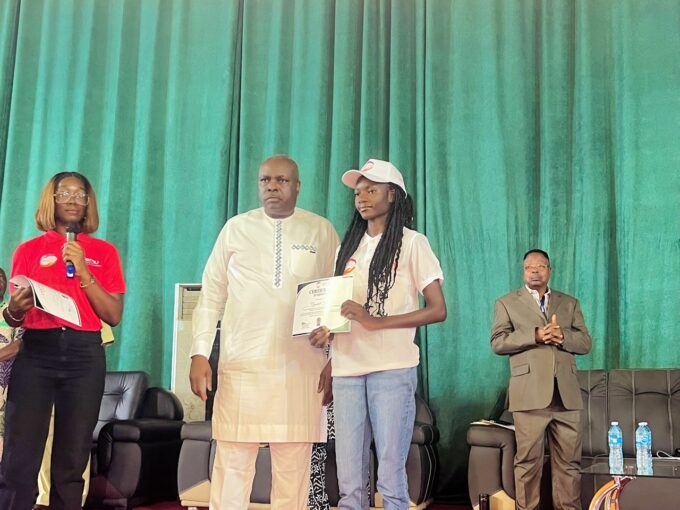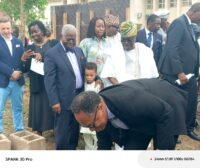For Adenike Adeyemi, entrepreneurship is more of a destiny than a career path. In her 10 years at the helm of Fate Foundation, she has helped transform the organisation into a hub for nurturing Nigerian entrepreneurs, equipping them with the skills, networks, and confidence to thrive. Now, as the foundation marks its 25th anniversary, she reflects on the journey and a bold future, Vanessa Obioha writes
Adenike Adeyemi believes in the Nigerian entrepreneurial spirit a lot. It is one quality that has continually captivated her in her 10-year tenure as the CEO of Fate Foundation, Nigeria’s foremost business incubator and social impact non-profit organisation.
“The entrepreneurial energy and potential of Nigerians, despite the numerous odds against them, continue to startle me in a positive way,” she tells me on a rainy afternoon in her office in Ilupeju. Their ingenuity and resilience consistently inspire her and her team at Fate, not only in supporting entrepreneurs but building an ecosystem that enables sustainable business growth.
Her all-white office bears quiet evidence of this belief. Packaged products from Fate alumni dot the room, alongside a framed drawing of a young girl who could easily pass as the younger version of Adeyemi. She tells me it’s a gift from one of the entrepreneurs, who told her the sketch reminded him of her.
Over the years, Fate Foundation has become synonymous with entrepreneurship. And aptly so. From the day it was conceptualised by Fola Adeola, co-founder of Guaranty Trust Bank, the mission was clear: to create an alternative to unemployment. In the 1990s, as new-generation banks were springing up and white-collar jobs were in high demand, competition was fierce. For a single position as a bank clerk, as many as 20,000 applicants could vie for just two openings. Disturbed by the alarming rate of young employable people and the waste of skills and potential, Adeola founded Fate Foundation to encourage entrepreneurship through training, mentoring, loan support, and consulting. What began as a training school has since evolved into a full-fledged business incubator and research institute.
“Our founding was on the basis that entrepreneurship can be a compelling alternative to employability,” says Adeyemi.
In its early years, much of the foundation’s work focused on inspiring people to consider entrepreneurship as a viable career path. This was at a time when many preferred white-collar jobs.
“Think about the late 90s and early 2000s,” Adeyemi recalls. “If a school were inviting a keynote speaker, it wouldn’t be an entrepreneur. It was more likely a doctor, lawyer, or professor. Entrepreneurship wasn’t a catchy thing.”
According to her, Fate Foundation was the first Nigerian non-profit to present entrepreneurship as both a career option and a skill set that could be taught.
“We helped people see that you could take an idea and think about it in a business suite and be educated about how to run or build a business, how to register a business, how to manage teams, all of the things that are very fundamental to that and weren’t in the Nigerian space.”
As the landscape evolved, so did the foundation while still retaining its vision as a compelling alternative to the employability of young people. What started as a training ground soon expanded into business support services.
“We realised that as people were building and growing businesses, they required business support and consulting. Nobody was providing advisory support for entrepreneurs. So, what we then did was to work with individuals who are able to share their expertise, but come down to the level of an entrepreneur who then needs that in different ways. We moved from education to business support services, which were in consulting, mentoring and others.”
From there, the foundation moved into resource-building, publishing books and later establishing incubation programmes.
“We needed to invest more time, knowledge, funding, and energy into those with high growth potential,” she explains. This commitment led to the creation of the Institute of Venture Design in 2009 in Abeokuta.
“We brought in 15 young Nigerians from across Nigeria to design ventures in sectors that were identified as priority sectors,” she says.
Their job was to ideate and build businesses around the identified sectors such as agriculture, fintech, automobile and others. The venture was launched in partnership with Stanford University.
Later, the Fate Institute was established to provide research and data on Nigeria’s entrepreneurial landscape. Today, it houses one of the country’s largest repositories of insights on entrepreneurship and small businesses, a fact Adeyemi glowingly shares. The foundation also hosts an annual policy advocacy series, engaging policymakers to better understand the entrepreneurial ecosystem and create enabling environments for businesses to thrive.
As demand for support grew, Fate leaned on technology to scale. Adeyemi notes that tech not only streamlined operations but also helped bridge digital divides. In 2019, the foundation’s participation in a Youth Business International and Accenture programme led to a Digital Acceleration Strategy. This became a lifeline during the COVID-19 lockdowns when entrepreneurs needed to stay afloat despite movement restrictions.
Since then, Fate Foundation has worked with partners such as Meta and Google to provide digital literacy. These collaborations birthed platforms like the MSME Hub, offering free courses in fields ranging from video editing and photography to education.
The more Adeyemi talks about her work, the clearer it becomes that she was destined for this role, even if she admits it is demanding. With limited resources, the foundation relies heavily on donors. “It’s not always about money,” she clarifies. “Some donors provide services instead.” Integrity, however, she notes is non-negotiable. There are times when the foundation has turned down donations. What matters most is that a donor’s vision aligns with theirs in solving a particular problem.
In a way, Adeyemi was prepared for this role. After graduating with a degree in Linguistics from the University of Ibadan, she worked with her uncle’s NGO, where she taught people how to use the internet, long before it became mainstream.
“It was appealing to me,” she fondly recalls. “But more importantly, unlike some of my other friends who were interning, I was teaching people how to use Microsoft Word and browse the internet. So it was fulfilling work for me.”
That experience sparked her passion for development work. Luckily, she was redeployed to Lagos during her National Youth Service and ended up serving at the NGO. She was particularly moved by the philanthropic nature of the job. “It was so altruistic to see them train people for free.”
Adeyemi was later selected for a program by Junior Achievement Nigeria called Venture in Management.
“They just selected 50 corps members nationally and took us to Lagos Business School for one week to teach us about management. And so I was learning about management, but also learning with another organisation like us, another non-profit. I saw people who were enjoying their work. And I felt it was a good career potential.”
Adeyemi later earned two master’s degrees — in Public Administration and International Relations — before working with the Nigeria Leadership Initiative. A stint at KPMG followed, where she gained valuable expertise in finance, management, and strategy. “Even though it was the private sector, I still worked on government and entrepreneurship projects,” she says. Eventually, she felt called back to the non-profit world. When the opportunity at Fate came, she didn’t hesitate.
“All my experiences in consulting, strategy, business, sustainability, and NGOs converged in this role,” she says.
For Adeyemi, the learning never stops. “Oh, I love our entrepreneurs,” she gushes. “The greatest lessons I’ve learned have come from them.”
Today, she calls herself a social innovator — one committed to designing solutions that address complex, systemic issues in society.
As Fate Foundation marks its 25th anniversary, she and her team are looking ahead with bold plans. These include celebrating partners who have walked with them, launching an ambitious initiative to reach five million entrepreneurs through artificial intelligence by 2029, and hosting their annual award event in December.


















Leave a comment